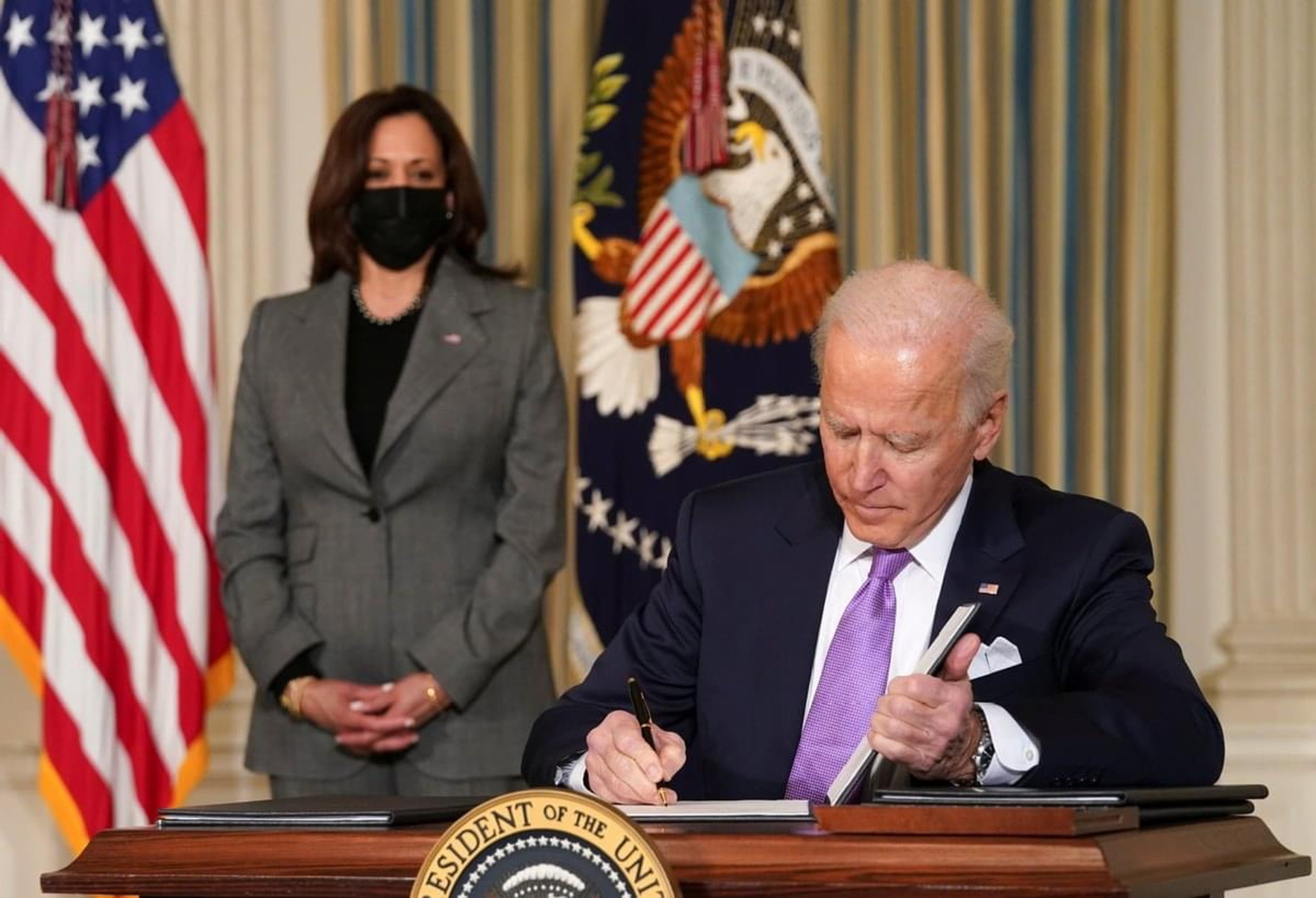Posts tagged private sector

‘Union Joe’ left labor movement weaker than it was
February 25, 2025 // As Dominic Pino pointed out last month in National Review, the overwhelming majority of workers in such fields as manufacturing, construction, mining, transportation and warehousing are not union members. Efforts to unionize employees attract disproportionate media cheerleading, especially when the unions target iconic American companies like Starbucks and Amazon. But there isn’t nearly as much coverage when workers in high-profile workplaces vote against joining a union — as they have recently at a Mercedes factory in Alabama, an Amazon warehouse in North Carolina and even Princeton University — or when scores of unions each year are decertified in workplace elections.

Commentary– Justin Hill: Protecting the Secret Ballot: A step forward for Mississippi’s workers and taxpayers
February 24, 2025 // this measure prohibits “neutrality agreements,” which can unfairly prevent employers from sharing information with their workers. Employees deserve the right to hear both sides of the issue rather than being presented with only the union’s perspective and talking points. Transparency is critical for workers to make informed decisions about their future. This legislation applies only to future economic incentives and union organizing efforts. It does not impact existing unions, current economic incentive agreements or subcontractors. Compliance with this law is straightforward and does not conflict with federal labor regulations. When a similar law was challenged in Arizona, the courts upheld the state’s right to protect the secret ballot process.

Opinion: Unions fight Trump to the detriment of workers they’re supposed to represent
February 24, 2025 // These unions are bargaining with the federal government over the height of cubicle desk panels. They’re demanding smoking areas on federal properties where smoking is banned. And government unions are even negotiating over workers’ right to wear spandex in the office. Is that really why workers join a union? To protect their ability to smoke and wear yoga pants? And every time unions negotiate over these things, taxpayers get hit, because they’re paying for the bureaucrats who have to sit at the bargaining table to negotiate for things like the right to wear spandex.
Cincinnati UPS Employee Slams Teamsters Local 100 With Federal Charges for Seizing Dues Illegally From Paycheck
February 19, 2025 // Union officials took money for union expenditures – including union politics – without informing worker of their rights
NEW HAMPSHIRE: ‘Right-to-work’ bill voted down once again
February 17, 2025 // "This bill is not anti-union, it is pro-worker," said Creighton, who pointed out it remains part of the state GOP platform. "This is vital to fair employment practices. Workers and employers should have the option to negotiate their own agreements. We owe it to our constituents to hear these arguments." Rep. Daniel Popovici-Muller, R-Windham, authored the bill and said it would be a "win-win" for the state, allowing employees to avoid having to financially support unions. "Many union members are unhappy with the performance of union managers, but have no option to air those grievances," Popovici-Muller said.
Right-to-work facts vs. myths
February 12, 2025 // What’s become evident over the decades is that right-to-work laws are associated with statistically significant gains in employment, particularly manufacturing employment, job opportunities, population growth and economic growth. If New Hampshire adopts a right-to-work law, we would expect to see improvements in all of those areas, along with an improvement in state business tax revenues resulting from the additional business activity. As for freedom vs. coercion, workers have First Amendment rights not to associate with or fund membership organizations that they choose not to join. If workers want to join unions, they should be free to do so.
For federal employees, remote work ought to be exception, not rule
February 9, 2025 // But the public sector is a different ballgame. Whereas most private sector employees can be fired at any time and for any reason, the process for firing federal workers is intentionally onerous. Federal employees' right to "due process" means that employers must give them a 30-day advance notice and explanation of alleged misconduct before a termination can go into effect. Federal employees then have the right to appeal the firing to an independent agency, retain independent counsel, file a complaint with the Office of Special Counsel, and then be reinstated with back pay and benefits should the appeal succeed.
Unionized Grocery Workers Are a Sleeping Giant
February 5, 2025 // A coalition of UFCW Locals 7, 324, 770, and 3000 helped defeat the largest proposed grocery merger in US history between Kroger and Albertsons. Now these locals are collaborating on contract negotiations and sending support to the King Soopers strike in Colorado
Commentary: Who Is Big Labor, Anyway?
February 5, 2025 // If the Current American Plurality wants to hold together, it will need to find ways to support workers as a whole, not cheaply chase the union members that BLS and other data reveal to be unripe for recruitment by throwing more traditional members of the coalition under the bus. The Taft-Hartley Consensus approach to labor relations, which Republicans have advanced for 80 years, offers the opportunity for those workers who freely choose to organize unions to continue to do so while protecting the rights of workers who choose not to form unions or choose to work independently. It should not be cheaply abandoned in service to myths about whom the conservative movement is seeking to court.
Opinion: Government Unions Are Hemorrhaging Members. Here’s Why.
February 4, 2025 // The numbers tell a stark story. While overall union membership sits at 9.9%, Big Labor still maintains a stranglehold over public employees, 32.2% of whom are union members. Of the 14.3 million union members nationwide, half work in government jobs, with teachers unions alone accounting for nearly one-quarter of all union members.
